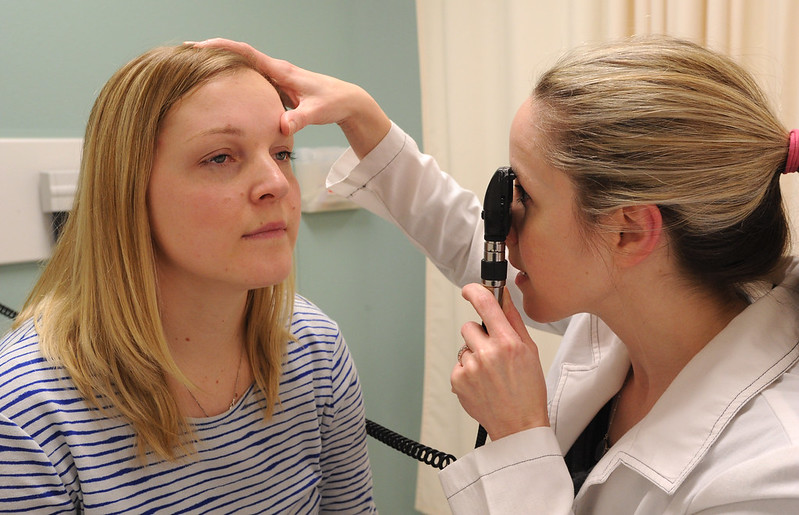

There’s been an ongoing debate in the healthcare community as to whether nurse practitioners should be allowed to work without a physician’s supervision. Currently, 22 states across the nation allow full nurse practitioner practice authority, which means nurses can prescribe medications, order tests, and diagnose patients without the supervision of a doctor.
Several states have pending legislation in the books that would give nurse practitioners more freedom in the workplace, but opponents of the bill worry that it could lead to more medical errors and substandard care.
Let’s explore this thorny debate from all sides and what it says about the current state of the U.S. healthcare industry.
The Case for Letting Nurse Practitioners Work Autonomously
The United States is currently facing a primary care provider shortage and essentially, this new legislation is designed to increase patient access to health care. In fact, about 13% of Americans live in a county with a shortage of physicians. Residents of rural areas are nearly five times as likely to live in a county with a lack of doctors, compared to urban and suburban Americans (38% compared to 8%).
The American Association of Nurse Practitioners reports that 98.7% of NPs hold graduate degrees and 99.3% are nationally certified. In many cases, nurse practitioners may be just as qualified to treat and diagnose patients as the doctors who supervise them. If more states let nurse practitioners work alone, these highly qualified individuals could help close the gaps in primary care and increase patient access. Patients also may not have to wait as long to receive care if a NP could treat them instead of a physician.
Increasing access to primary care services would improve the health of the entire nation. More check-ups, physicals, and routine exams could mean fewer chronic conditions, reduced readmission rates, and lower healthcare costs for both patients and providers.
The Case Against Letting Nurse Practitioners Work Alone
Some believe letting nurse practitioners work autonomously could lead to unintentional medical errors. Doctors may have more experience and medical education than nurse practitioners, so many believe they should be there to supervise. Some people argue that if more states let nurse practitioners take the reins, it may start to devalue the role of doctors in the industry. Those against NPs working alone state that since doctors have pursued higher education for a reason, they should have more authority in the workplace.
However, the truth of the matter is that many nurse practitioners have doctoral degrees. Some NPs may also have more experience treating patients than their supervisors. Does it make sense to have a doctor who has just graduated from medical school supervise a nurse that’s been treating patients for more than twenty years, solely because he or she is a physician?
There is also little evidence to suggest that letting NPs work alone leads to more medical errors. Several states allow NPs to work alone and there have been no extraordinary reported incidents of errors or damage to patient outcomes. In fact, a recent study by the California Health Care Foundation suggests allowing nurse practitioners to work alone leads to fewer preventable hospitalizations and emergency room visits.
Is Sexism at Play?
We can’t talk about this issue without addressing the fact that most doctors are male and most nurses are female (although a slow shift is happening). Some have suggested that sexism may be at play within the argument at hand.
A recent report in STAT suggests that laws that restrict the autonomy of NPs may be holding them back in their careers – and sexism may be to blame. The study compared state nursing restrictions based on whether the state supported the Equal Rights Amendment, which guarantees equal rights for all Americans regardless of sex. States that did not support the ERA were more likely to restrict a nurse practitioner’s role in the workplace.
The issue may also be financial. Doctors collect hundreds, if not thousands, of dollars in fees from the NPs they supervise. Some doctors may be in no rush to end this arrangement. Still, high doctor fees can make it all the more difficult for some patients to access care, especially if they don’t have insurance and can’t afford to pay out of pocket.
It may only be a matter of time before more states let NPs work on their own. This change within the industry could increase access to care, improve patient outcomes, and reduce healthcare costs. In the end, state lawmakers will have to decide what’s best for their constituents and the local healthcare industry.
In a shocking incident on December 4, 2024, Brian Thompson, the CEO of UnitedHealthcare, was…
In an unprecedented step toward financial relief and health equity, the city of St. Paul,…
In early November 2024, a shocking tragedy unfolded in Budapest, Hungary, as American nurse Mackenzie…
If Robert F. Kennedy Jr. were to assume leadership of the U.S. Food and Drug…
On November 1, 2024, federal authorities charged 38-year-old Rebecca Fadanelli, owner of Skin Beaute Med…
In a quaint little restaurant in Echo Park, an up and coming author is sitting…